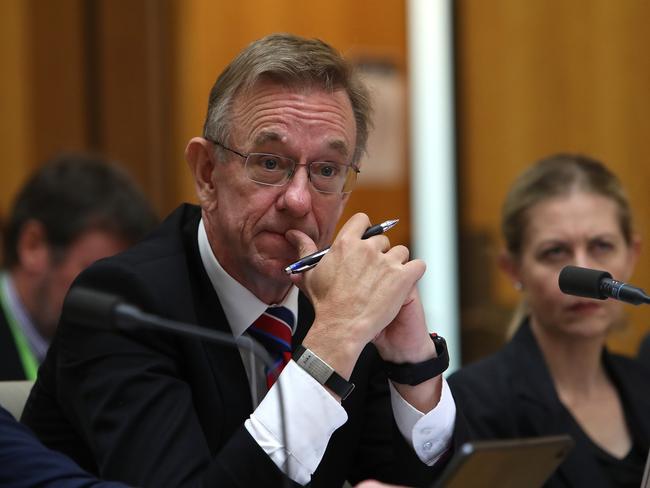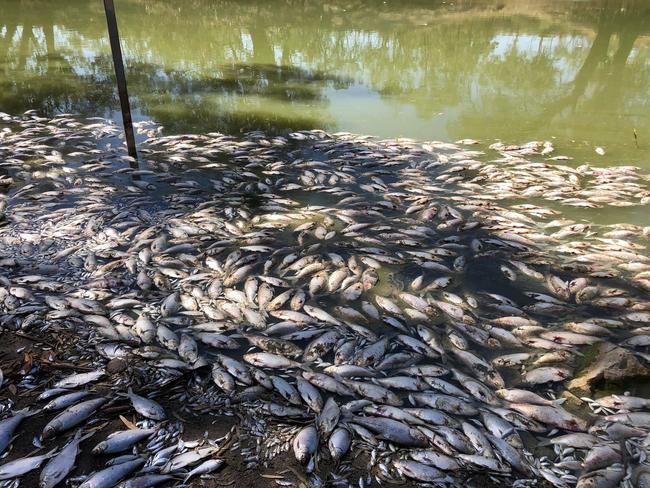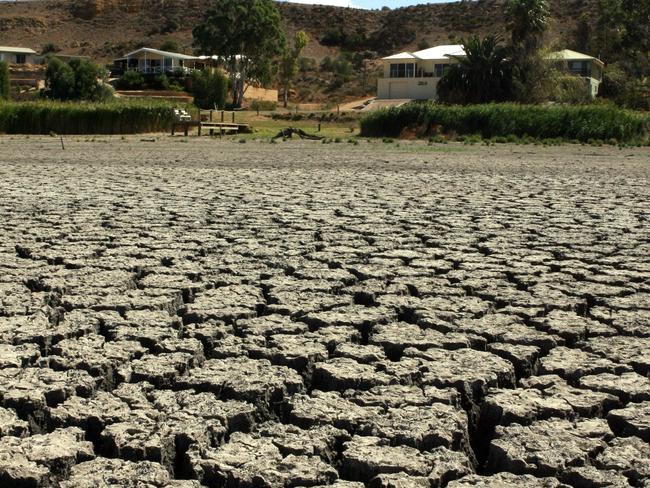MDBA chief gives bleak forecast for Murray-Darling river system
Some communities have run out of water before summer even starts, and more mass fish deaths are likely — authorities have delivered a bleak forecast for the Murray-Darling Basin.
SA News
Don't miss out on the headlines from SA News. Followed categories will be added to My News.
The head of the Murray-Darling Basin Authority has painted a bleak picture of the next 12 months for the river system, warning conditions will worsen after the driest 33 months on record.
More mass fish deaths are likely over summer with “dire” conditions in the northern basin, MDBA chief executive Phillip Glyde says.
He has also warned it won’t always be physically possible for governments to supply water “even for critical human needs” in severe drought.
Mr Glyde told an estimates hearing in Canberra today “conditions have worsened” since April.
“There are some communities that have run out of water, while others are already on high-level water restrictions, and it’s not even summer,” he said.

Mr Glyde said while the situation in southern basin was not as “dire” as the north, water would be “severely limited” if there was no “significant” rainfall in winter and spring next year.
“The long-term forecast suggests there is little relief in sight,” he said, noting the Bureau of Meteorology had found the 33 months from January 2017 to September 2019 had been the driest on record across the Murray-Darling Basin.
“We are expecting more fish deaths, and water quality issues like blue-green algae this summer,” Mr Glyde said.
Temperatures across most of the Basin were above average in September, while water storage was at just 39.7 per cent on October 22.
“Some storages in the northern Basin are as low as 1 or 2 per cent,” Mr Glyde said.
The southern basin’s storage was at 44 per cent.
Mr Glyde defended the Basin Plan, saying it ensured water was prioritised for critical human needs such as drinking or household water during droughts.

He also said commitment to the plan was “more important than ever” in drought because it ensured water was shared fairly between communities, irrigators and the environment.
Commonwealth Environmental Water Holder Jody Swirepik sent the blunt message she could not legally “give or lend water” for the environment to irrigators.
“I can only consider trading water on the open market when it is not required for the environment — that clearly isn’t the case now,” she said.

“Under law, I cannot give or lend water for the environment.
“We saw the terrible impacts during the Millennium drought when the Murray didn’t have enough water to run to its natural end point in the Coorong, and just last summer we saw fish deaths in the Lower Darling when there was insufficient flow to reach the end of the Darling system.”
Ms Swirepik told the committee current environmental water use was having no impact on water allocation for drought-affected farmers.
“Environmental water holders receive allocations on exactly the same basis as other entitlement holders,” she said.
